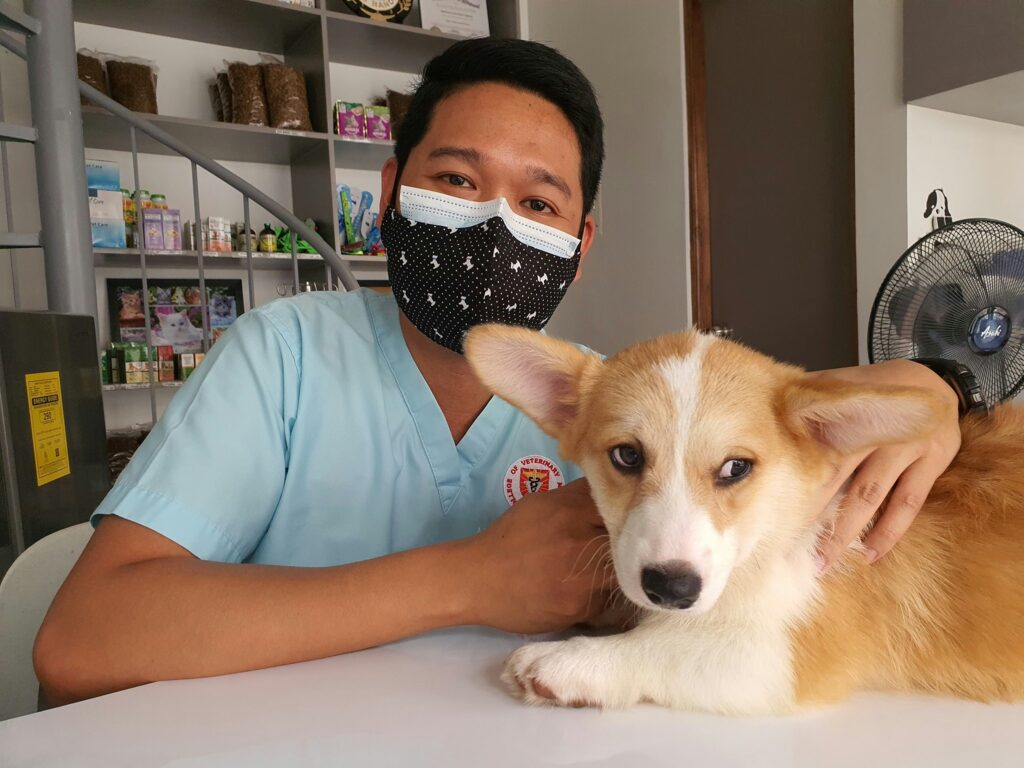Veterinary technicians play a crucial role in animal healthcare teams in the United States. They help diagnose and treat animals, assist in surgeries, run lab tests, and care for animals in clinics and hospitals. To become a veterinary technician, you’ll need to meet specific requirements, which can include certification and, in some states, a license. In addition to basic licensure, you can also specialize in areas like anesthesia, dentistry, and emergency care. This article will walk you through the key vet tech certifications, licensing steps, and advanced credentials, plus information on exams and costs, to help you get started on this rewarding path.

Education and Credentials for Vet Techs in the States
In the United States, there are prerequisites that need to be fulfilled prior to attaining a license as a veterinary technician which include passing set examinations, and having a degree in an accredited program. These standards help to guarantee that the veterinary technicians have the right knowledge and education that they need to help animals.
Completing an Associate’s Degree in Veterinary Technology
The first requirement for aspiring vet technicians is usually a two-year Associate’s Degree in Veterinary Technology. This program offers basic education and clinical application so that students are able to undertake numerous tasks in clinical, laboratory, and surgical areas. By classroom learning and field experience, the competencies required for operation under veterinary supervision to serve as critical contributors to animal health are developed.
Importance of AVMA Accreditation
For one to be more qualified for a vet tech, enrolling in an accredited program by the AVMA is recommended. The educational programs for veterinary technicians are approved by the American Veterinary Medical Association, and most of these programs set high standards.
Credentials from AVMA mean that the curriculum incorporates sound training, enough equipment, and qualified teachers. Graduates are also qualified to take the Veterinary Technician National Examination (VTNE), which is necessary for obtaining a license in most states should they attend schools accredited by the AVMA.
Getting education from an accredited program does more than just assist the student to gain entry into the profession; it also assists in advancement in the field.
Licensing Exam: The Veterinary Technician National Examination (VTNE)
In the United States, VTNE is a requirement for attaining a license for the professionals who want to become a veterinary technician in most of the states in the country. Developed and offered by the AAVSB, the VTNE tests a candidate’s capability in different critical skills and knowledge domain, and guarantees that the candidate is capable to offer excellent clinical services. The American Association of Veterinary State Boards helps you verify your VTNE eligibility based on your state or province’s requirements. You can verify your eligibility here.
Exam Structure and Content
The VTNE is a comprehensive exam covering several core topics integral to veterinary technology. Though these are subject to change, they might include:
- Animal Care and Nursing: This section assesses the degree of general and specific nurse knowledge of basic care and high-tech manipulations, patient handling, monitoring vital signs, and supportive care.
- Anesthesia and Analgesia: The knowledge of the candidates is assessed on anesthesia procedures, medications, analgesia, and vital signs during operations.
- Laboratory Procedures: This segment is all about blood sample, urine test and other important techniques that are used to examine the patients.
- Pharmacy and Pharmacology: The candidates have to have knowledge on the use, dosage and impacts of numerous veterinary drugs so that they can help a veterinarian in administering the drugs.
The VTNE usually includes 150 questions only multiple choices, along with twenty pilot questions, which are not taken into consideration for the final score. The test must be completed within three hours; it is administered three times a year during standard testing periods.

Cost and Eligibility
The prerequisites for VTNE include graduation from an AVMA accredited veterinary technology program or meeting state requirements for taking the test. The cost of the examination is $350, which includes the cost of applications and the ability to take the test in different cities across the United States of America. AAVSB provides additional opportunities to prepare for the exam: practice questions and tests.
The VTNE is a crucial exam that is undertaken after all vet techs must complete in order to receive state licensure and become professionals. This makes the employer and clients in the clinic to be confident with vet techs since it has a seal that show that the individual has met the national certifications.
State-Specific Requirements for Veterinary Technicians
Besides the VTNE, every state in the U.S. has other supporting requirements that must be met to certify veterinary technicians. Additional exams are the common requirement along with the continuing education, and sometimes certain state laws that the veterinary technicians have to follow are other state specific requirements.
Jurisprudence Exams
Some states have set a jurisprudence examination, which is an examination that checks the candidate’s knowledge of the state laws and regulations concerning veterinary. These examinations are important to make sure that those technicians know and follow the laws in their area pertaining to animal welfare, patient rights, and many other responsibilities. Jurisprudence exams are given on the legal aspect of practice, including controlled substances, animal welfare, and laws governing the scope of practice.
For example, the state of California requires that all technicians who wish to practice in this state sit for a jurisprudence examination when applying for certification. The exam consists of questions on the laws and regulations related to veterinary practice in the state of California, the Business and Professions Code, and the VMB regulations. The purpose of the course is to make veterinary technicians understand the legal roles that they play in the state.
CE Requirements
After getting their license, most veterinary technicians are mandated to take continuing education (CE) courses in order to keep their licenses. The specific need is to continue education so that the technicians are knowledgeable with current veterinary practices, technology, and standard of care.
The amount of CE hours that are needed depends on the state. For example:
- California has set a requirement for veterinary technicians to attend CE for 20 hours within two years. Such courses can concern animals, surgeries, ethical questions, etc. Further information about this can be found on the California VMB CE page.
- The state of Florida requires that veterinary technicians practice a minimum of 16 hours of CE every 2 years. Such courses should be relevant to the functioning of the technician in veterinary practice and should include clinical and technical skills, law and ethics courses. The FVMA provides information on Florida’s CE requirements on its website.
Other State-Specific Requirements
Some states also have certain additional licensure specifications that are not typical. For instance, some states may have extra tests, which involve different procedures, safety measures, or emergency measures standards. These requirements assist in ascertaining that veterinary technicians have the required skills together with the knowledge commensurate to the need of animal health industry in the state.
The American Association of Veterinary State Boards (AAVSB) is a helpful website for the veterinary technician wishing to know his/her state’s licensure laws and other laws, such as those on extra tests, CE, and others. For more information about what each state expects from you in terms of licensure renewal, the AAVSB’s official site is the one to visit.
Certification and Titles for Veterinary Technicians
In the United States, veterinary technicians need to adhere to different credentialing guidelines, one of which is that given titles are based on state-mandated titles and professional certification organizations. These are the formal titles and certifications that depict the technician’s abilities and academic background, and may differ from state to state.
Titles Based on Credentialing
The generic titles widely adopted include Licensed Veterinary Technician (LVT), Registered Veterinary Technician (RVT), and Certified Veterinary Technician (CVT). These titles describe the degree of professional authorization of a veterinary technician and may differ from one state to the other.
- Licensed Veterinary Technician (LVT): This title is often used in the states that demand license for the technicians to practice their profession. LVTs are required to have an accredited veterinary technology program, successfully pass the VTNE, state requirements like continuing education, and jurisprudence exams.
- Registered Veterinary Technician (RVT): This designation is used mostly in states that expect technician to go and register with a state board of veterinary. Unlike the LVT, RVTs must graduating from an accredited program and must pass the VTNE. Additionally, in some states, RVTs are required to fulfil several Continuing Education and have to follow the code of ethics.
- Certified Veterinary Technician (CVT): This title is used in states that have endorsed certification through professional organizations as optional. For instance, those in New York have an opportunity to get certification from New York State Veterinary Technician Association (NYSVTA). Certification also indicates that technicians have complied with various requirements standard in practice.
Certification Bodies
Incase the states do not require certain licensure, the veterinary technicians can opt to be certified through the various associations and bodies. Two of the most known certifying organizations include the American Veterinary Medical Association (AVMA) and the National Association of Veterinary Technicians in America (NAVTA). These organizations offer certification programs that afford such professional recognition as might aid the technician in moving up a career ladder.
For instance, NAVTA awards the Veterinary Technician Specialist (VTS) certification, which is a coveted certification in specific fields including anesthesia, dentistry, emergency and critical care among others. Earning a VTS title involves formal education and experience as well as the passing an examination specific to the title.

Get Your Vet Tech Certification and Start Your Career
The path to becoming a veterinary technician in the United States is filled with essential steps that build both knowledge and skills. From completing an accredited education program to passing the VTNE and any state-specific exams, each requirement is designed to ensure that vet techs are fully prepared to provide high-quality care. Many technicians choose to go further, pursuing specialized certifications in areas like anesthesia, dentistry, or emergency care. These extra credentials not only open doors to advanced job opportunities but also contribute to better patient outcomes and advancements in the field. By achieving these milestones, veterinary technicians play a crucial role in animal health, making a real difference in the lives of animals and the people who care about them.”
